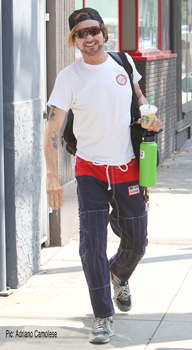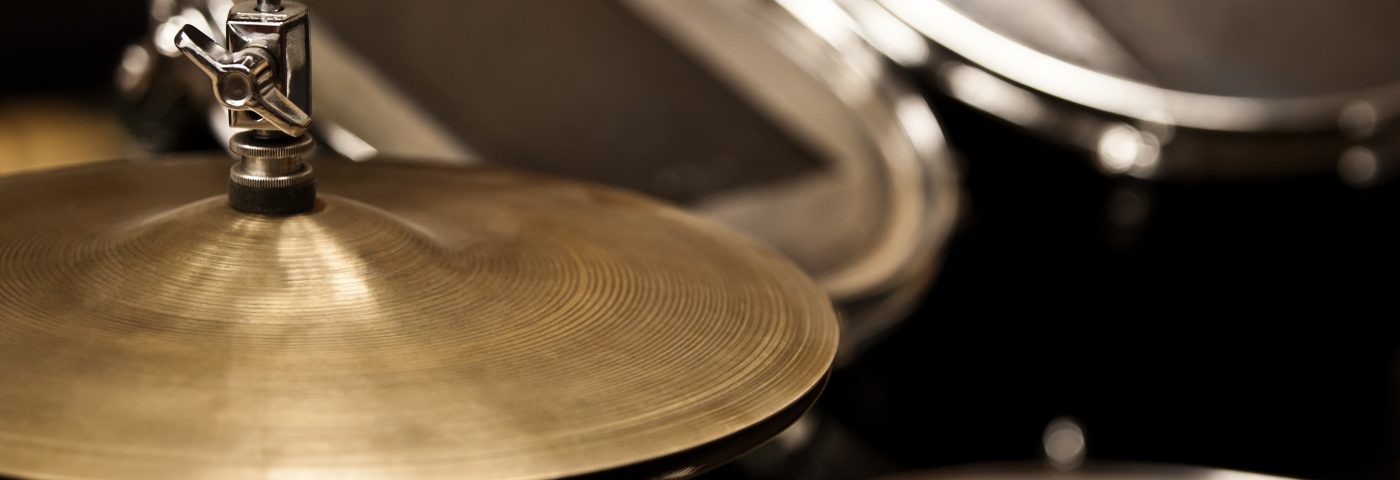Poison band drummer, Rikki Rockett has received good news from the Moores Cancer Center at UC San Diego Health — that he is officially cancer free.
Rockett received his oral cancer diagnosis more than a year ago and underwent chemotherapy and radiation treatments, but they did not work. He began experimental cancer immunotherapy several months ago.

Image provided by Rikki Rockett to UC San Diego Health
Rockett says he entered the immunotherapy clinical trial not only for himself, but also because he wants to be around for his children, Lucy, 3, and Jude, 7, who still need his love and support for many years to come.
Rockett enrolled in a trial that was testing the combination of two drugs that work together to remove cancer cells’ defenses against the body’s immune system. Only a few medical centers in the United States make this type of treatment available at this time.
The trial tested Keytruda (pembrolizumab) – an antibody that inhibits the interaction between the molecule PD-1 on immune cells and the molecule PD-L1 on cancer cells and allows the immune system to recognize and attack tumors.
Keytruda has already been approved by the Food and Drug Administration (FDA) for certain cancers like melanoma, but not Rockett’s oral cancer.
The other experimental immunotherapy drug tested in the trial was epacadostat, an inhibitor of the IDO (indoleamine 2,3-dioxygenase) pathway which regulates immune responses by suppressing T-cell function and enabling local tumor immune escape.

Rockett’s treatment was supervised by Dr. Ezra Cohen, MD, professor of medicine at UC San Diego School of Medicine and Moores Cancer Center’s associate director for translational science.
“We are delighted that Rikki responded so well to immunotherapy. He had already been through a lot with chemotherapy and radiation treatment before he came to us, but his cancer recurred,” Cohen said in a press release. “That’s the advantage of immunotherapy over traditional therapy — there are fewer side effects, we can specifically eradicate cancer cells almost anywhere in the body, and it’s effective against tumors that are resistant to chemotherapy and radiation.”
Rocket is now slowly getting back to his routines, including his Brazilian jiu-jitsu practice and riding his motorcycle, as well as taking care of his children. He hopes to be able to join Poison on tour again soon.
In the meantime, Rockett wants to spread the word about immunotherapy to those who have already exhausted other treatments and to those who have been newly diagnosed with cancer.
“My hope going forward is that by talking to other cancer patients, I might be able to lessen their pain and suffering,” he said. “I know from experience that chemotherapy and radiation are not fun. If I can help anyone else, it would help give reason to what I went through.”
Rockett will continue his treatment in the trial until it’s completed. Because this is not yet an FDA-approved therapy, Cohen cautions that despite the promising results, immunotherapies for oral and other cancers are still in early-phase research studies and they are not yet at the point of replacing standard of care practices, usually involving chemotherapy, radiation, and surgery.


